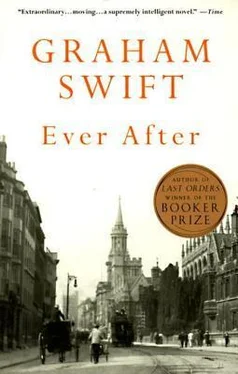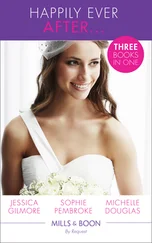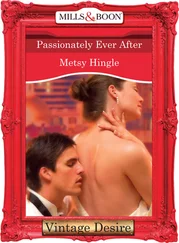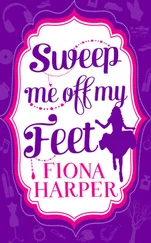And I didn’t know I loved her till I’d dreamt of her. I didn’t know it was the real thing until an illusion had signalled it. Until she’d stepped out of her real existence into this other existence of which only I knew …
I still remember that dream: its simple but panic-ridden formula, its tides of anguish and relief. How there was this train to catch. How we were going on this long, momentous journey (oh yes, I know — the symbolism of trains). How we had arranged to meet at the station, a big London terminus. And how, despite careful planning, everything — London Transport, my own flustered brain, the perils of the street, a bulging suitcase — conspired to stop me arriving on time. A taxi broke down. There were crowds that wouldn’t part. I was late, irrevocably late. The train would be gone and so would she.
But as I crossed the station concourse, there she was, waiting, waving, by the barrier. And there, still, was the train. It was all right, you see: she had spoken to the driver (she had spoken to the driver!). Didn’t I know this was a special train: it couldn’t possibly leave without us?
We fell into an embrace, an intimate and swooning embrace, there and then on the crowded concourse. And when I woke up, the embrace, the whole dream, still clung to me, I still existed within it, as in some warm envelope. What’s more, I was convinced that she must know she had been in my dream — that she too must have had a dream, a parallel dream, in which she had waited for me at the station, stricken by the fear (but she had this obliging engine driver) that I might never turn up.
So I never dared tell her — never in thirty years — for fear of breaking some beautiful, tacit conspiracy: “I had this dream …”
But the dream gave me the courage (that very day) to say the words I had not uttered before. You see, it was I who said them first, though she echoed them soon afterwards, as if to prove my (our) dream had been mutual. And all that afternoon, of course (they are truly magic words), was like a dream. A dream.
Where did this happen? It happened in, of all places, the Reptile House of the London Zoo in Regent’s Park. Where do you go, what do you do, on a cool, grey Sunday afternoon in August, when the pubs have closed and everywhere else is shut? We clanked through turnstiles. We drifted into the sheltering darkness of this home for exiled toads and vipers. It was not the first time, I suppose, that lovers had availed themselves of its dim-lit sanctuary. And there, under the unimpressed gaze of comatose pythons, disgruntled alligators and forlorn tortoises, we whispered into each other’s ears the words that my (our) dream had endorsed, and nuzzled and pressed against each other and behaved as the human species will behave under such circumstances as ours. And, of course, now the words had been spoken, there was no denying that further question, asked by our bodies if not our lips (hadn’t our souls already eloped — by special train?): When? Where? How?
How strange the contrast between the dazzle, the display of the Blue Moon Club and these furtive but intrepid creatures, plotting with reptilian stealth their happiness. Love makes of its initiates bold undercover agents in the hostile territory of mundanity and propriety. We resolved, that same afternoon, that nothing less was our due than a whole night in each other’s arms. Which meant, given the rigours of our situation, the expedient of some cheap hotel. I was to make the arrangements. Next Sunday. Could we afford it? We’d have to. Could we wait that long? Just about. We walked over Primrose Hill. Sweet Primrose Hill. A primrose sun, hiding behind grey, watery clouds. We parted, to go our separate ways in Camden, my flat feet floating on air.…
That moment when the performance begins! That magic moment when the lights go down and the curtain trembles; when the pretend thing, the made-up thing becomes the real thing and the audience, in their dark rows, turn to ghosts. How can it be? Why should it be? What’s Hecuba to him? That moment when things come alive.
It doesn’t always happen. There is good acting and bad acting (I know this). We sit in our seats and think of a thousand things. But she could do it, that simple, marvellous thing: she could bring things to life.
Who was she, this sorceress? A little girl with a bee in her bonnet about becoming an actress; the only child of a doting father and a disapproving mother; a night-club dancer who in the cold-blooded gloom of the London Zoo Reptile House indulged with me in hot-blooded but as yet unconsummated passion; a woman who for nineteen years of her life inhabited the undiscovered country of my complete ignorance of her. Then loomed into my view. And the world’s. Ruth.
They say I should write her biography. It has been put to me more than once — by friends, by a publisher or two, even, on that last visit, by a well-meaning Sam (“You know the book I think you should write, pal. What’s with this Pearce guy, anyway?”). The life of Ruth Vaughan, actress. Each time, it has come with the tacit, the soft-toned hint that this might be, as it were, a cure for grief. But it seems to me it would be an impossibility, a falsehood, a sham. It’s not the life, is it, but the life ? The life .
How was it done? What was the trick? I don’t know. I couldn’t act for toffee, but I know what it’s like, sitting here in this dimming garden, not to be sure who you are. They say that actors and actresses are really shadowy, half-formed, insubstantial people. Dogged by a poor sense of their own identity and a lack of personality, they make up for it by striving to become — these other people. But why not start with the other premise? That actors have an excess of personality: more to spread around. And why not start from the premise — it would be logical and fair and neat, wouldn’t it, even if it’s patently not so — that nature has given each one of us an equal, definitive and sufficient personality?
And let me be clear, in any case, of one thing: these other people that she became and at whom, with other people, I marvelled — they didn’t matter to me. It didn’t matter to me whether she became them or not, so long as she was, also, herself. Herself. And it wouldn’t have mattered to me if we had never had all those things, never known all those things — the tours, the great days: the stuff of biographies — if not to have had them would have meant to have her still, here, now.
But then what I ask is this: could there have been a Ruth Vaughan who did not do all those things, who never became an actress?
Of course.
Of course not.
And could there have been a Ruth Vaughan who did or did not do all those things, who was or was not all those things, without ever entering my life or my entering hers?
Of course.
Of course not. Of course not.
And can I really believe that in all this turning into other people, in all this promiscuity of personae, up there before the lights, she never ever—?
Not the life but the life. I used to watch her pacing up and down at the end of the garden at the cottage, addressing the air. For me the most wonderful thing was always this act of rehearsal, this straining of life after life: ballet dancers, on a frosty morning, at the barre . I remember once when she was in full flow, complete with her running commentary of interjections, expletives and self-exhortations and her battery of cigarettes, a man came to fix a TV aerial to the chimney. From which, of course, he had a grandstand view. Did she stop? No. She knew he was there. Did she abate her voice or her pungent asides? No. From his perch, the aerial man would have beheld Ruth talking volubly to people who weren’t there, not to mention rattling away to herself. The classic signs. I remember his look of suppressed bewilderment as, the job done, his ladder removed, I at last enlightened him (having joined in the game): “My wife is an actress.” Which didn’t prevent him, I’m sure, from going away with the conviction that my wife was mad.
Читать дальше












